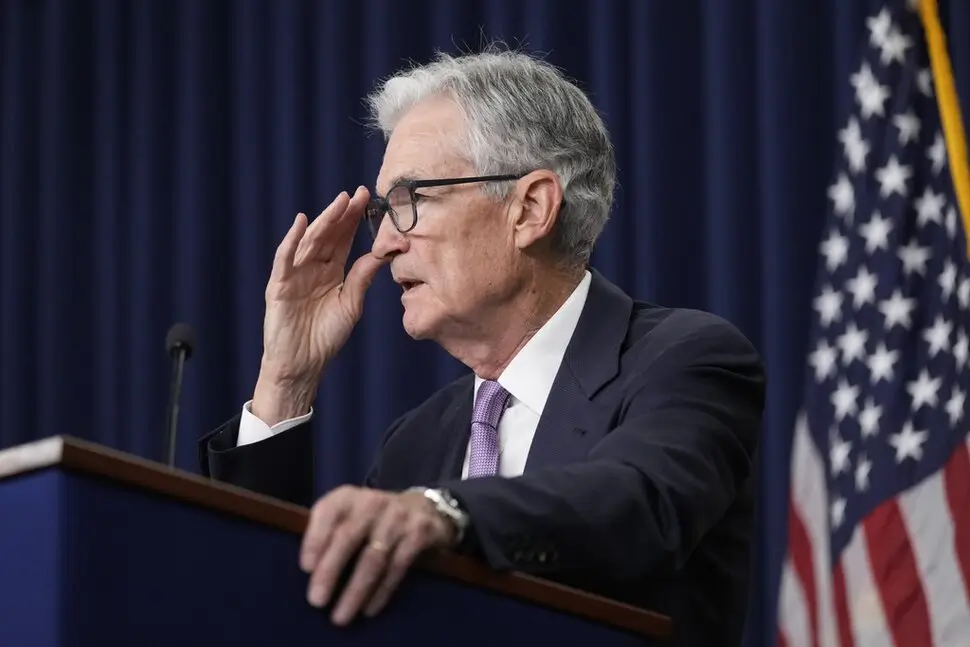Fed Cuts Interest Rates Again, Powell Says He Won’t Resign if Trump Asks


The Federal Reserve cut interest rates by a quarter point Thursday, continuing on its path to bring down borrowing costs just two days after an election that many economists fear could bring an uptick in inflation.
“Since earlier in the year, labor market conditions have generally eased, and the unemployment rate has moved up but remains low,” the Fed said in a statement. “Inflation has made progress toward the Committee’s 2% percent but remains somewhat elevated.”
“The committee judges that the risks to achieving its employment and inflation goals are roughly in balance,” it added. “The economic outlook is uncertain, and the Committee is attentive to the risks to both sides of its dual mandate.”
The move was expected and markets are already pricing in another 25 basis points cut in December.
“In his view, inflation is conquered, but I have some concerns,” says Dan North, senior economist for North America at Allianz Trade, referring to Fed Chairman Jerome Powell.
Asked directly Thursday whether he would resign if asked by Donald Trump, Powell offered a one-word response: “No.” Pressed as to whether he thinks he would be legally required to, he said: “No.” When a second question was asked whether the president can actually fire a Fed chief, he answered tartly, “Not permitted under the law.”
Powell otherwise refused to answer any questions about the election and its effect on the economy or the Fed. But things may still get somewhat complicated for the Fed and Powell.
Trump and Powell are no strangers. Indeed, it was Trump who first elevated Powell to the top post at the central bank in 2018, although he was originally appointed during the first term of Barack Obama in 2012 and then re-nominated as chairman by President Joe Biden.
Trump at one point in 2019 considered firing or demoting Powell after the president soured on him for holding interest rates too high. During the 2024 campaign, Trump took occasional pot shots at Powell and the Fed, but later backed off and said he would not fire the chairman, whose term expires in May 2026.
Although the Fed has been fighting the headwinds of a strong economy and fiscal stimulus as it works to wring the last vestiges of inflation from the system, the possibility of an unfettered Trump and a Republican Senate could mean some of the president-elect’s economic plans will be enacted quickly.
An extension of the 2017 tax cuts now seems quite likely, but proposed expansion of import tariffs, deportations of immigrants who have bolstered the labor market’s supply, and reducing income taxes could combine to increase the national debt, raise prices and lead to higher market interest rates. Much of that, however, will not have an impact until later next year or in 2026.
“There’s no concern in Congress for fiscal responsibility,” says Cindy Beaulieu, chief investment officer North America at Conning.
Powell did say the Fed would review any changes in fiscal policy once it is in effect and adjust its outlook and policy if the central bank deems it necessary. He repeated his oft-cited warning that the path the federal debt is on is unsustainable.
For now, the mood on Wall Street is one of euphoria. The Dow Jones Industrial Average soared by more than 1,500 points on Wednesday with surging shares of firms expected to benefit from less regulation, lower taxes, and a more domestic economic focus – including banks, crypto companies, and energy companies. Tech companies also rallied on the belief that a Trump administration would not be as aggressive on antitrust suits against firms such as Google.
While stocks ran up, yields on bonds also rose – a response to what the market sees as higher growth for the economy and increasing risks of inflation. The yield on the 10-year Treasury has risen to 4.34% from 3.6% in mid-September.
“The primary drivers of long rates are U.S. economic growth assumptions and inflation expectations,” says Jordan Rizzuto, managing partner and chief investment officer at GammaRoad Capital Partners. For Powell and the Fed, he adds, “It’s definitely a difficult and unenviable position to be in.”
